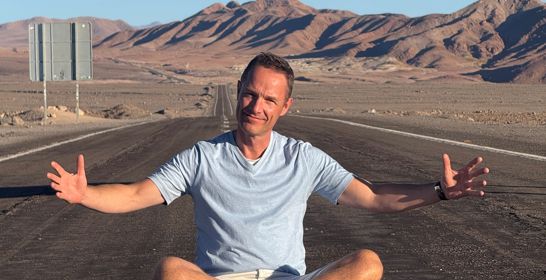
Don’t miss out on new resources
Please join us as we – together with our partners – chart new paths toward a healthier world. Sign up for our newsletter today.

Interview with Arjen Iwema, new member of the FLRF Advisory Board
Can you tell us a little about yourself?
I was born Dutch and am now bi-national Swiss–Dutch. I’m a strategist, board member, and executive coach with over 20 years of experience across more than 50 countries. After roles at Shell and McKinsey, I founded my own consulting and training firm, W-focus, in 2011.
My work focuses on bridging strategy and execution in complex environments – particularly across healthcare, public policy, and philanthropy. I support governments, NGOs, and private-sector organizations in cutting through noise, challenging complacency, and delivering focused, common-sense impact – especially in fragile or crisis-hit systems.
I believe in staying focused, working with rigor, and enabling others to do the work they’re truly meant to do.
What caught your interest in this Advisory Board role at FLRF?
The Family Larsson-Rosenquist Foundation caught my attention because it focuses on an issue at the intersection of women’s emancipation, child and adult health, and sustainable development – breastfeeding. Its evidence-based, systemic approach to promoting breastfeeding through research, policymaking, and education aligns closely with my own values and experience. The Foundation’s combination of rigorous problem-solving, health promotion, empowerment, and training is rare – and resonates deeply with the kind of work I strive to do.
Throughout my journey, I have been committed to improving health outcomes, not just through strategy, rather by enabling real-world systems to function better for real people.
I have helped build and reform healthcare systems – including setting up national health insurance and regulatory structures in Mauritania, Cyprus, and across parts of Western Europe. I have contributed to building regulatory bodies, such as the conceptual design of a national Food and Drug Administration in Saudi Arabia and also supported governments and organizations in responding to viral outbreaks, including MERS and COVID-19. For two decades, I devoted significant time to education – designing and delivering programs for universities, NGOs, and private institutions.
I work across cultures and continents, always trying to bring a global, not just Euro-centric, perspective.
As the newest Advisory Board member, how will you direct your expertise to helping the Foundation achieve its vision?
We are living through a period of profound change in the global geopolitical, economic, and human rights landscape. As an Advisory Board member, I aim to contribute public and private sector experience and managerial discipline to support the Foundation in navigating this complexity.
My focus is on helping the Foundation translate its endowments and grants into measurable, on-the-ground impact – distinguishing it from well-intentioned organizations whose costly operations can sometimes fall short when it comes to scale and sustainability.
Why is the Foundation’s commitment to support breastfeeding and breastmilk meaningful today?
The Foundation’s commitment to supporting breastfeeding and feeding children with breastmilk is not only meaningful - it is essential. It addresses both immediate and long-term global health challenges at a time when infant wellbeing continues to be threatened by malnutrition, inequality, and misinformation.
By promoting breastfeeding, the Foundation empowers government leaders, policymakers, health professionals, educators, and families to give babies the best possible start in life. Breastmilk provides vital nutrients, immune protection, and supports cognitive development, while also strengthening the bond between mother and child. Through investment in research, knowledge translation, and education, we help build communities grounded in human dignity and evidence-based information, thus making a lasting, positive impact on public health and child development around the world.
Having worked directly with, and observed a wide range of NGOs globally, I recognize that most are founded with the genuine intent to create lasting impact within their area of expertise and focus. But as they grow, that mission can become secondary to organizational survival, reputation and growth.
My recommendations for philanthropies, NGOs, and social investors:
Philanthropy should be uncomfortable, rigorous, and outcome focused.
How could other philanthropies or social investors join this strategic approach to increase breastfeeding rates?
There are opportunities for great impact by collaborating rather than duplicating efforts. For example, organizations working in humanitarian crises can integrate breastfeeding support into their response, ensuring continuity of care for mothers and infants. Strategic alignment across sectors – not siloed initiatives – is what moves the needle.
Can you tell our readers a fun or unknown fact about yourself?
What comes to mind is my conviction that “fun” is often not very fun at all. In a world driven by quick-cycle gratification – entertainment, fast food, shopping, social media validation – I believe that real satisfaction comes from challenge, persistence, and meaningful human connection.
My idea of fun looks a little different: swimming in cold water, cycling up – and down – the Swiss hills, planting tulips, preparing healthy meals that actually taste good, and exploring people and cultures not for show, not for a bucket list or to collect likes or hearts, but for the depth they offer – and perhaps develop something new that lasts.